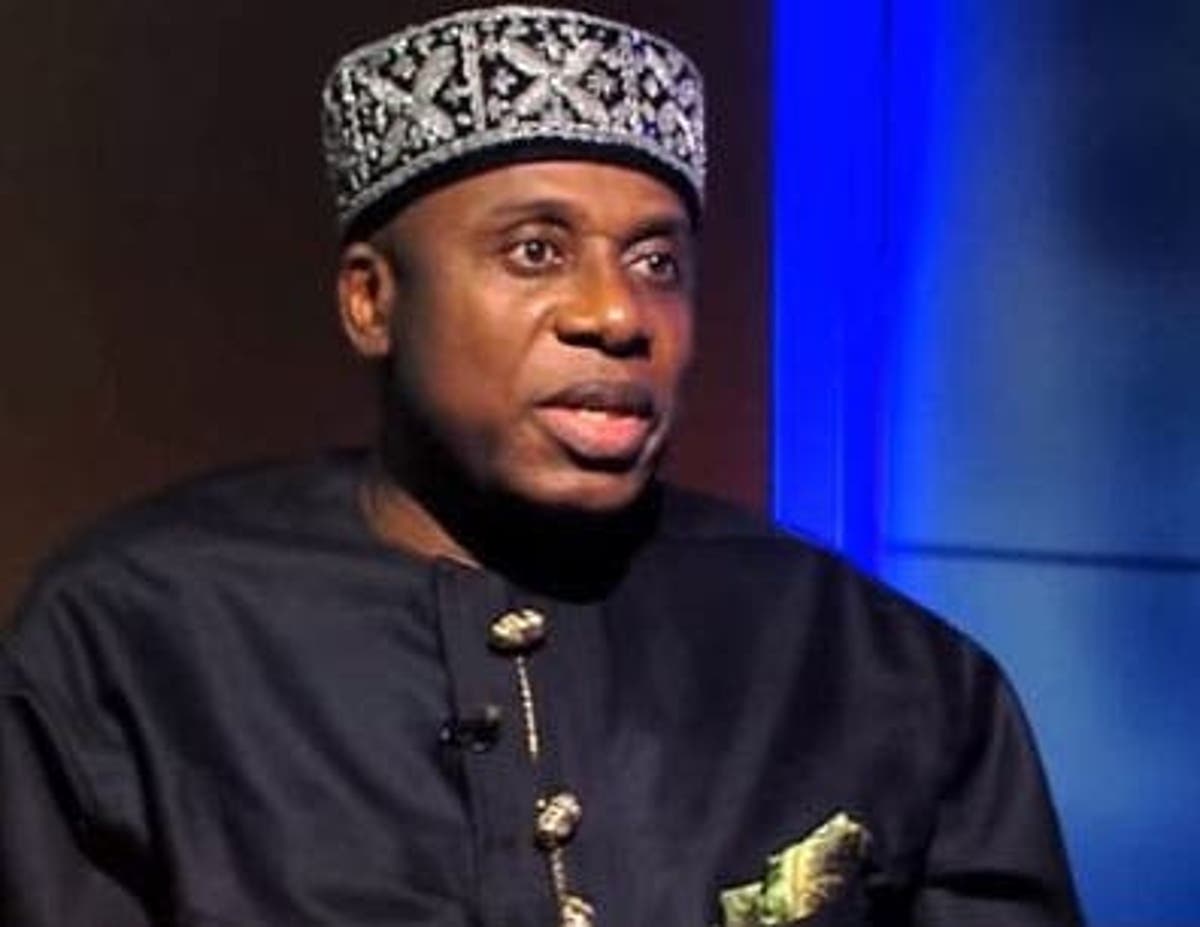n leaked audio, Minister of Transportation, Rotimi Amaechi, revealed President Muhammadu Buhari’s die-hard desire to borrowing to finance infrastructure, regardless of harsh criticisms from Nigerians.
Mr Buhari’s regime has been censured by many Nigerians and the opposition for its decision to borrow billions of dollars, including from China, to build badly-needed infrastructure.
In an audio interview recorded just before the 2019 presidential election, Mr Amaechi said the president was adamant about taking loans and had vowed to go to jail on his behalf.
“And I like the president’s disposition. He says, ‘let’s borrow it. They can say whatever they like. When we finish, once we are borrowing to the infrastructure, and we finish developing, Amaechi, don’t worry. I’ll go to jail on your behalf. You won’t go to jail,” Mr Amaechi disclosed.
Mr Buhari’s aides, Femi Adesina and Garba Shehu did not respond to Peoples Gazette’s requests seeking comments on the minister’s claims.
In September 2020, Mr Buhari justified borrowing to finance infrastructure during a virtual meeting with the Presidential Economic Advisory Council (PEAC) at the State House in Abuja.
According to him, the country had to get loans “to do roads, rail and power, so that investors will find us attractive and come here to put their money.”
Earlier this year, the current administration borrowed about $2.6 billion from China Exim Bank to construct the Lagos-Ibadan railway.
According to a report published by AfriHeritage policy Brief, Nigeria’s total public debt stock rose continuously “from N8.32 trillion in September 2013 to NGN22.7 trillion in March 2017.”
In December 2020, the Debt Management Office estimated Nigeria’s public debt to be N32.9 trillion, or $86.3 billion. The debt comprised N12.7 trillion in external debt, N20.2 trillion in domestic debt, including loans by banks. Of the external debt, 9.7 per cent or N1.2 trillion was owed to the Export-Import Bank of China.
“The loans from China are concessional,” according to the DMO and are used for funding water supply, power and railways to airport terminals, communications, and agricultural processing.
Nigeria’s debt to China grew 136% between September 2015 after Mr Buhari assumed office and September 2020, from $1.4 billion to $3.3 billion, official figures by the DMO indicated.
Earlier in the year, American credit rating agency Fitch said the current administration’s reliance on Nigeria’s Central Bank to fund the country’s budget deficit might result in economic consequences.
The agency stated, “We estimate that the balance of the government’s Ways and Means facility with the CBN was around N9.8tn (6.7 per cent of GDP) at end-2019, up from N5.4tn (4.2 per cent of GDP) at end-2018.”
It added that “borrowing from the facility accounted for 30 per cent of the Nigerian government’s debt at end-2019, on our estimates.”


